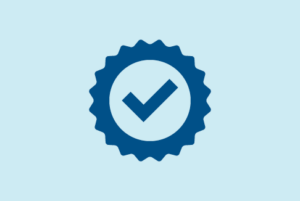Earlier this week, CHA’s Hospital Quality Institute issued a statewide alert calling attention to an increased prevalence of whooping cough (pertussis) in California.
Specifically, according to HQI data, nearly a quarter of hospitals — especially those in the Inland Empire — were seeing higher than expected numbers of pertussis cases. This timely information is critical to clinicians working in hospitals as flu season, spikes in COVID-19 cases, and the spread of respiratory syncytial virus converge.
Alerts like these serve as an early warning system for hospitals to be on the lookout for certain diseases or other conditions that are spiking. In this case, the elevated prevalence of whooping cough is not limited to California. According to the Centers for Disease Control and Prevention, the country has seen cyclical pertussis jumps like this every three to five years and California’s last increase of this size was in early 2019.
These alerts demonstrate the power of what California hospitals can do when they collaborate with their patient safety organization. In supporting the early warning system, nearly 100 hospitals statewide provide timely data submissions to HQI’s Collaborative Healthcare Patient Safety Organization, a platform for communication and sharing of data-driven best practices and key clinical information.
The organization and its activities are only possible through hospital support and engagement — these data from hospitals are the foundation for actionable alerts and key tools to improve patient safety.
HQI has much more to offer, and CHA members can participate in this work as a benefit of their membership in the association. Membership is open beyond the state border, and out-of-state hospitals that have affiliations in California are offered significant discounts.
The benefits of engaging with HQI and CHPSO are numerous:
- This year’s annual conference featured RaDonda Vaught, the first nurse ever criminally charged in a medication error resulting in injury or death. Hundreds were moved by her deeply personal story and message.
- Extensive legal protections provide a safe harbor so that reported medical errors and near misses become patient safety work products, protected from discovery.
- Data analyses identify clinical patterns that cause medical errors, develop and convey best practices, and share lessons learned.
- Access to collective resources of patient safety experts and innovators translates into significant clinical and financial performance improvement.
- Education programs improve patient safety through user group meetings, webinars, safe table discussions, and in-person conferences.
- Safe table forums provide a space to convene and have open dialogue about patient safety and quality issues in a confidential and legally privileged setting.
- In-depth patient safety resources offer root cause analyses, custom research reports, sample policies and procedures, and independent peer review.
- With BETA HEART® as a partner, hospitals can build a culture of safety, improve response to harm, and provide care for the caregivers.
To learn more about how HQI can help support your organization, contact President Robert Imhoff at rimhoff@hqinstitute.org. For more information about sharing data and real-time alerts, contact Kamali Jones at kjones@hqinstitute.org.


